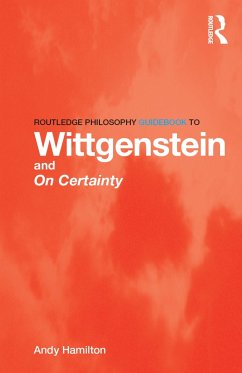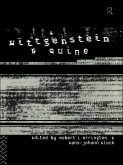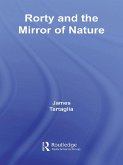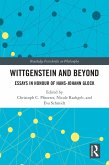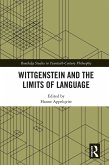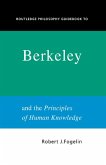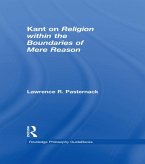Dieser Download kann aus rechtlichen Gründen nur mit Rechnungsadresse in A, B, BG, CY, CZ, D, DK, EW, E, FIN, F, GR, HR, H, IRL, I, LT, L, LR, M, NL, PL, P, R, S, SLO, SK ausgeliefert werden.
'Wittgenstein wrote, "Philosophy is not a body of doctrine but an activity... [of] clarification". He shows us paths from metaphysical abstraction to the more habitable, yet largely unrecognised, world of our everyday lives. But how does this therapeutic conception infuse the enigmatic epistemological writings known as On Certainty? As a guide, Hamilton is precisely the sort of reader Wittgenstein would have wanted, one fully engaged in thinking with, and against, the text. Hamilton's Wittgenstein is a humanist who rejects the current orthodoxy that models philosophy on the natural sciences. By demonstrating the power of the text to stimulate his own thoughts, Hamilton encourages us to think with the text ourselves.' - David Macarthur, Sydney University, Australia

